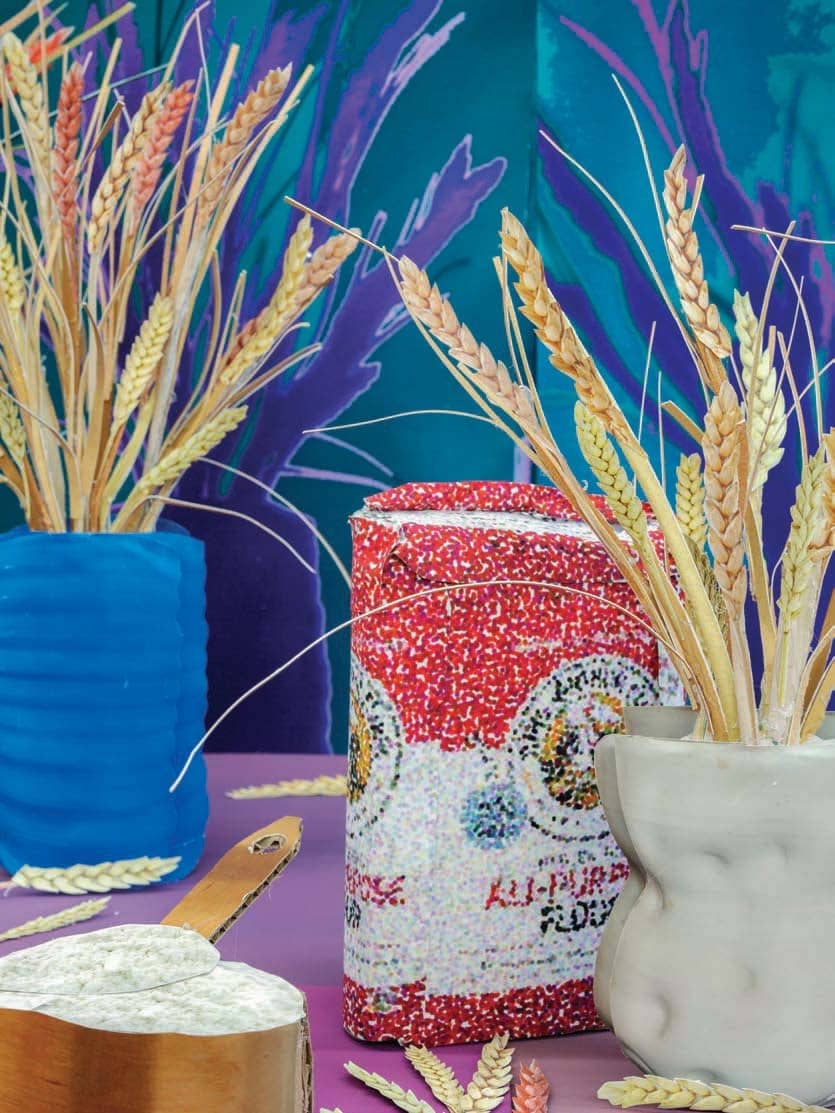
On March 18, Bob Morando, the chief executive officer of a flour mill located in the pancake-flat wheat fields of central Kansas, received a short, cryptic text from Brad Heald, the director of mill relations for his biggest customer, King Arthur Flour Co. “Call me,” it read.
Morando had an idea what Heald might want. Locals had been showing up at the mill all day in frantic pursuit of flour after finding it sold out at nearby grocery stores. When Morando called, Heald asked what it would take to get his whole-wheat flour mill, Farmer Direct Foods Inc., to double its output. King Arthur, one of the country’s largest flour companies, was running dry.
Mid-March is normally when a mill such as Morando’s slides into its annual slow period, as the weather warms and home bakers step away from their ovens. But fears were rising about the spread of the novel coronavirus. Cities across the U.S. were implementing unprecedented school and business closures, and shoppers were preparing for weekslong quarantines like the ones they’d seen on news reports from China and Italy.
Anything that could be hoarded flew off the shelves— pasta, toilet paper, canned soup. Among the staples in highest demand was also, unexpectedly, flour. The American public seemed to reach a collective understanding that baking, with its soothing rhythms and hint of homestead self-reliance, was just the thing to help ride out a stay-at-home order.
King Arthur’s retail flour sales almost tripled in March; in some grocery stores, when shipments arrived, shoppers picked the pallets clean before anything made it to the shelves. In two weeks, the entire “safety stock”— essentially, the company’s strategic flour reserve—was depleted, and so were baking aisles across the country.
Denne historien er fra June 22, 2020-utgaven av Bloomberg Businessweek.
Start din 7-dagers gratis prøveperiode på Magzter GOLD for å få tilgang til tusenvis av utvalgte premiumhistorier og 9000+ magasiner og aviser.
Allerede abonnent ? Logg på
Denne historien er fra June 22, 2020-utgaven av Bloomberg Businessweek.
Start din 7-dagers gratis prøveperiode på Magzter GOLD for å få tilgang til tusenvis av utvalgte premiumhistorier og 9000+ magasiner og aviser.
Allerede abonnent? Logg på

Instagram's Founders Say It's Time for a New Social App
The rise of AI and the fall of Twitter could create opportunities for upstarts

Running in Circles
A subscription running shoe program aims to fight footwear waste

What I Learned Working at a Hawaiien Mega-Resort
Nine wild secrets from the staff at Turtle Bay, who have to manage everyone from haughty honeymooners to go-go-dancing golfers.

How Noma Will Blossom In Kyoto
The best restaurant in the world just began its second pop-up in Japan. Here's what's cooking

The Last-Mover Problem
A startup called Sennder is trying to bring an extremely tech-resistant industry into the age of apps

Tick Tock, TikTok
The US thinks the Chinese-owned social media app is a major national security risk. TikTok is running out of ways to avoid a ban

Cleaner Clothing Dye, Made From Bacteria
A UK company produces colors with less water than conventional methods and no toxic chemicals

Pumping Heat in Hamburg
The German port city plans to store hot water underground and bring it up to heat homes in the winter

Sustainability: Calamari's Climate Edge
Squid's ability to flourish in warmer waters makes it fitting for a diet for the changing environment

New Money, New Problems
In Naples, an influx of wealthy is displacing out-of-towners lower-income workers